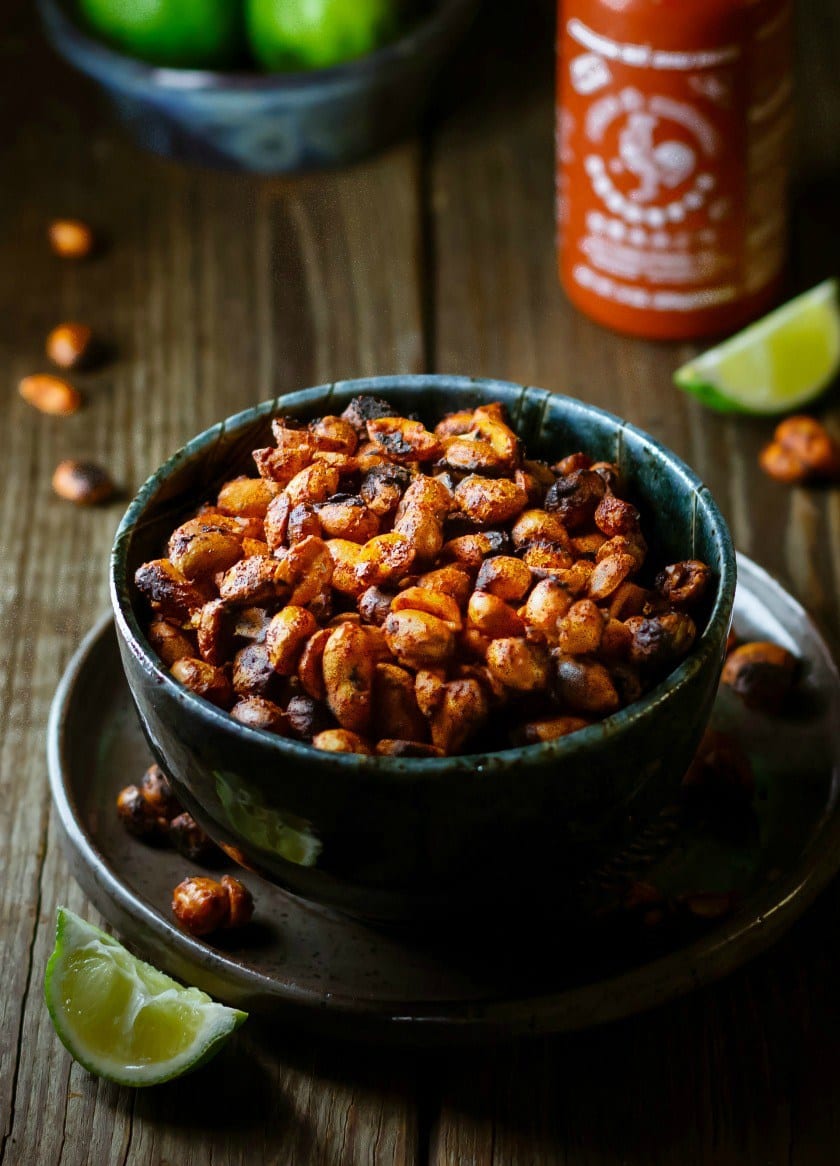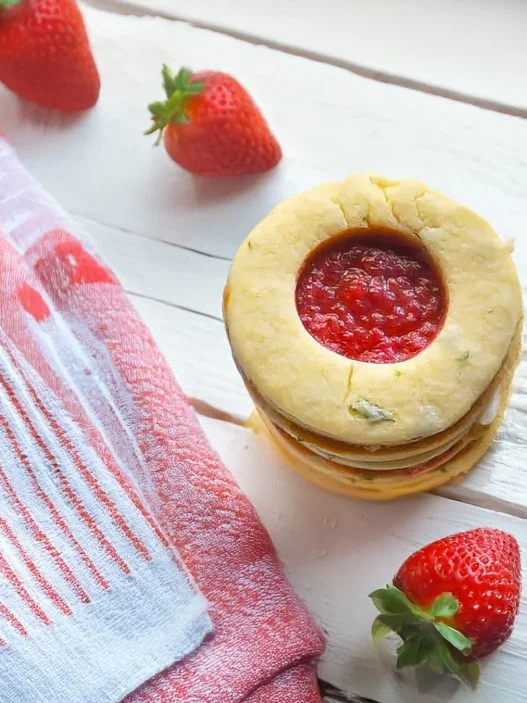For Brits mince pies are integral to the holidays. And this recipe by Executive Chef William Drabble at St. James’s Hotel & Club will become an integral part to your holiday dining table.
Mince pies have been a popular dessert in England for centuries. The traditional mince pie used to consist of meat and fruit, such as shredded beef suet or venison, but it has evolved over time to include more ingredients. In fact, meaty versions of this pie haven’t been popular on holiday tables since the 17th century. Nowadays, the British staple is primarily a fruit pie filled with boozy dried fruit. And they’re often served warm with a dollop of brandy butter or whipped cream on top.
Like many households in England, Executive Chef William Drabble’s recipe pays homage to his family, particularly his grandmother. “I always remember her making them when I was a child and I guess it’s a tradition that I try to carry on!” It features suet, finely chopped dried fruit, orange marmalade, chopped confit orange peel, and brandy, encased in a buttery crust. The pie is sweet, rich and complex, unmistakably expressive of the English culture and extremely reminiscent of the holiday season.
There are a few steps and things to note before assembling the pies. First you’ll need to make the pastry crust which can be refridgerated until ready to use. Next the mincemeat calls for suet, which can be prepped ahead of time or store bought to save time.
What is suet?
Veal suet is a type of hard fat that is found around the loins and kidneys of a calf. In terms of culinary uses, suet is particularly prized for its high melting point, which makes it ideal for deep frying and pastry making, such as for traditional British puddings, mince pies, and dumplings. The high melting point results in a light, crispy texture in fried foods and a crumbly, flaky texture in baked goods.
If you don’t have the time to make your own suet, or if you cannot find veal suet in your supermarket, there are some options:
- Vegetable Suet: This is increasingly available in many supermarkets and specialty stores across the US. It’s designed to mimic the texture and fat content of traditional suet without any animal products, making it suitable for vegetarians. Brands like Atora offer a vegetable version of suet that can be used in a 1:1 ratio as a replacement.
- Butter: Readily available and a staple in most households, butter is an excellent substitute for suet. For best results, freeze the butter and then grate it before adding it to your mince pie mixture. This approach helps maintain a texture similar to that of suet. Butter also contributes to a rich flavor in the pastry.
- Shortening: Vegetable shortening like Crisco is widely available in grocery stores across the US and can be used as a direct substitute for suet. It’s especially useful in pastry recipes due to its high fat content and ability to create a flaky texture. Shortening has the added benefit of being flavor-neutral, which makes it a versatile option for various recipes.
Lastly the mince filling should ideally be prepared a couple weeks in advance so that the fruit can soften and the flavors can meld. However, If you’re short on time and cannot prepare the mince filling for your mince pies weeks in advance, the shortest amount of time to ideally make it ahead would be at least 24 to 48 hours before using it. This allows enough time for the fruit to soften somewhat and for the flavors to begin melding together, resulting in a more cohesive and flavorful filling.
Print
English Mince Pies
- Total Time: 3 hours 30 minutes
- Yield: 12-15 pies 1x
Description
This mince pie is sweet, rich and complex, unmistakably expressive of the English culture and extremely reminiscent of the holiday season.
Ingredients
Sweet pastry
- 4 cups all-purpose flour
- 1 and 1/2 cups confectioner’s sugar
- 1 cup unsalted butter, softened
- 2 large eggs, lightly beaten
- 1/4 cup heavy cream
Mincemeat
- 1 large lemon, juiced and zested
- 1 large Bramley cooking apple, peeled, cored and grated
- 1 and 3/4 cups dark brown sugar
- 2 and 1/2 cups veal suet (homemade or storebought)
- 1 and 1/2 cups raisins
- 1 and 1/2 cups sultanas
- 2 tablespoons chopped confit orange peel
- 2 tablespoons Seville orange marmalade
- 1/3 cup Calvados
Mince Pies
- Sweet pastry
- Mincemeat
- Water
- Demerara sugar
- Brandy butter or cream ( optional garnish)
Instructions
Suet*
- To make the suet, you need the fat from around the veal kidneys – have your butcher mince it for you (allow more than you need as you will lose some of the weight in the process).
- Put the minced veal fat into a pan and heat gently until it has all melted, then pass the melted fat through a fine sieve and leave to cool to room temperature.
- Take a large bowl and fill it with ice and water; gently pour the fat from a height of about 30 cm into the ice water while stirring the water quite quickly. (The fat will set into little globules that will then mix into your mincemeat nicely and melt away into the mix when cooked)
- When all the fat has set in the iced water, pour through a sieve, discarding the water and reserving the fat.
- Put the sieve with the fat in it in the fridge with a bowl under it so that any excess water can run off and be discarded
Sweet Pastry
- Sift the flour and confectioner’s sugar together
- Rub in soft butter to make breadcrumbs
- Add the eggs and cream to form a smooth paste
- Wrap in cling wrap and refrigerate until required
Mincemeat
- Put the lemon juice, zest and grated apple into a pan, cook gently to a puree, set to one side, and leave to cool.
- Mix the remaining ingredients together and add the puree.
- Place in a sterile jar with a tight-fitting lid and leave to mature in the fridge for at least 10 days and up to 2 weeks.
Mince Pies
- Roll the pastry out to approx. 3mm thick (it might be easier to do this between 2 sheets of wax or parchment paper). Cut discs of pastry large enough to line a tart mold (6 cm wide and 1.5-2 cm deep) and then big enough to make a pie topper.
- Line your tart molds with the pastry. Put some filling into the pastry, brush the edge of the pastry with a little water, and then place the lid on top, sealing the edge.
- Brush the pastry tops with water and sprinkle with demerara sugar.
- Bake in the oven at 165-170 c until golden brown.
- Leave to cool a little in the molds before removing them, as the mix will be very hot, and the pastry will crumble.
- Remove from the molds when they have cooled a little (if you can wait that long).
- Serve on their own or with cream or brandy butter. (Brandy butter is equal quantities of butter and confectioner’s sugar whisked together, with brandy added to taste.)
Notes
*If you don’t want to make your own suet, or have a hard time finding veal suet in your local supermarket, you can use one of these alternatives:
- Vegetable Suet: This is increasingly available in many supermarkets and specialty stores across the US. It’s designed to mimic the texture and fat content of traditional suet without any animal products, making it suitable for vegetarians. Brands like Atora offer a vegetable version of suet that can be used in a 1:1 ratio as a replacement.
- Butter: Readily available and a staple in most households, butter is an excellent substitute for suet. For best results, freeze the butter and then grate it before adding it to your mince pie mixture. This approach helps maintain a texture similar to that of suet. Butter also contributes to a rich flavor in the pastry.
- Shortening: Vegetable shortening like Crisco is widely available in grocery stores across the US and can be used as a direct substitute for suet. It’s especially useful in pastry recipes due to its high fat content and ability to create a flaky texture. Shortening has the added benefit of being flavor-neutral, which makes it a versatile option for various recipes.
- Prep Time: 3 hours
- Cook Time: 30 minutes
- Category: Pastry
- Method: Baking
- Cuisine: British























